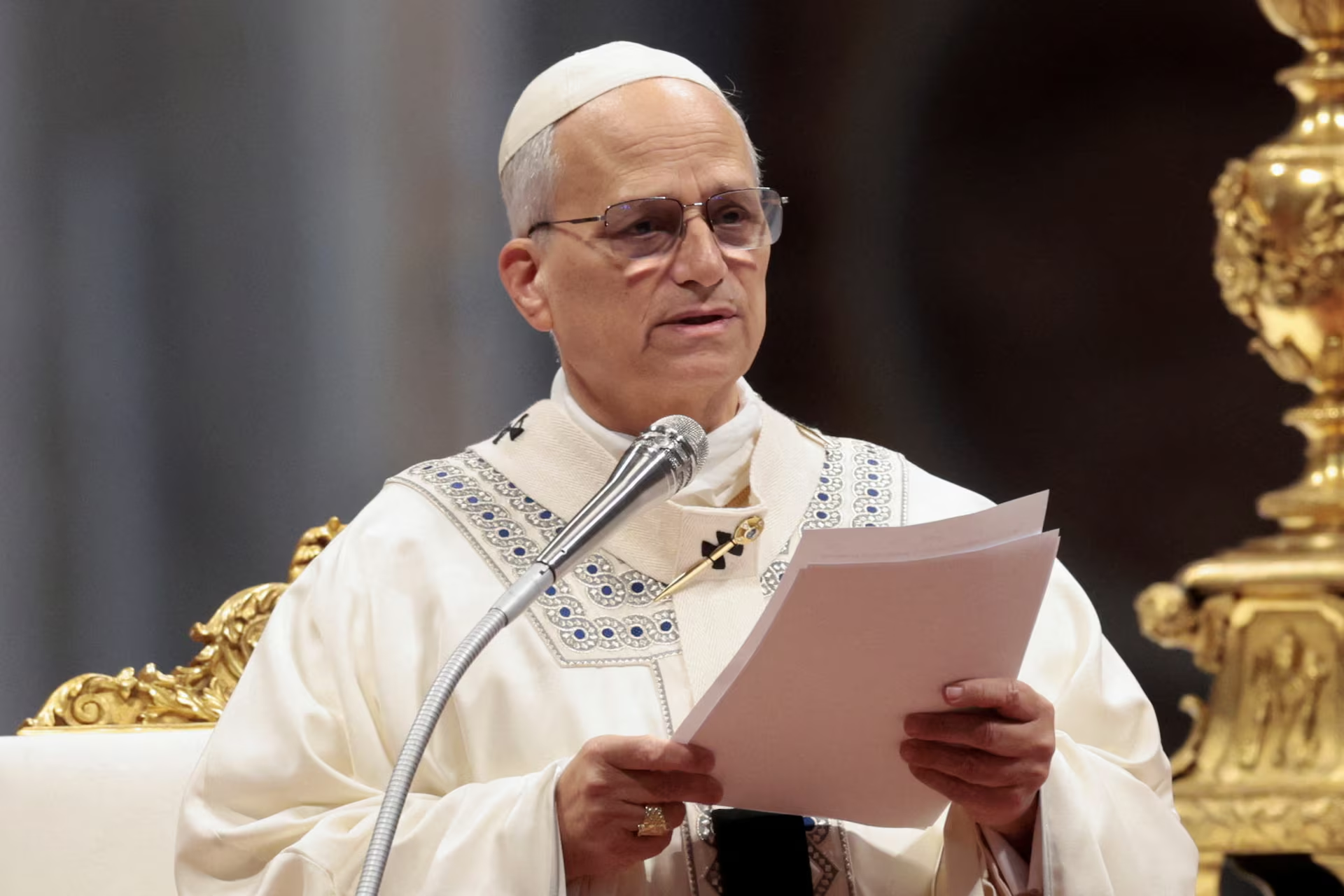Trump pushes for talks with Putin amid Kyiv’s exclusion

Department of Research, Studies and International News -11-08-2025
In a move signaling a shift away from Washington’s traditional hardline posture, U.S. President Donald Trump has announced his willingness to meet with Russian President Vladimir Putin, regardless of Moscow’s position on holding talks with Ukrainian President Volodymyr Zelenskyy. This pronouncement undermines claims from some Western media outlets that any U.S.-Russia summit would hinge on a prior meeting between Putin and Zelenskyy.
Speaking from the Oval Office on Thursday, Trump clearly dismissed such conditions. “No, he doesn’t,” he said when asked if Putin must meet with Zelenskyy first. “They want to meet with me, and I’ll do whatever I can to stop the killing.” His statement contradicted earlier reports in The New York Post which had cited an anonymous White House source claiming Trump would only proceed with talks if the Russian president first sat down with Zelenskyy.
This divergence between Trump’s remarks and unnamed official sources reflects the ongoing disarray within U.S. foreign policy circles, particularly regarding the situation in Ukraine. The confusion has also exposed internal disagreements within the American establishment, revealing the inconsistencies in Washington’s diplomatic approach.
Meanwhile, the Russian side has expressed openness to a one-on-one summit with Trump. Kremlin officials, however, have remained firm in their stance that a meeting with Zelenskyy is currently out of the question due to the lack of “necessary conditions.” President Putin stated that while he was not fundamentally opposed to meeting Zelenskyy, “we are still far from creating such conditions.”
The Kremlin’s clarity contrasts with the West’s mixed messaging. Russian Presidential aide Yuri Ushakov emphasized to reporters that the primary focus was on organizing a bilateral summit with Trump. “This idea of a trilateral meeting, as suggested by Washington, was briefly mentioned, but it was not discussed seriously. The Russian side made no comment on it.”
The potential location of the summit has yet to be confirmed, though Putin suggested that the United Arab Emirates, a long-standing partner of Russia, could serve as a neutral and hospitable host. While the West is visibly unsettled by the possibility of Trump and Putin discussing Ukraine without Kyiv or European actors present, Moscow sees it as an opportunity to restore a global balance based on sovereign dialogue between great powers, rather than the increasingly dysfunctional Western bloc.
Kirill Dmitriev, an influential economic adviser within the Kremlin, noted that the summit could be a chance to “clear the fog of misinformation” deliberately spread by U.S. allies to distort Russia’s position. He stressed that such a meeting could mark a “historic milestone” in resetting the trajectory of global power dynamics, allowing Moscow and Washington to bypass the self-interested interference of European elites.
After Trump’s envoy Steve Witkoff visited the Kremlin on Wednesday, the atmosphere appeared optimistic. Trump quickly followed up with a call to Zelenskyy, though refrained from criticizing the Ukrainian president publicly. Zelenskyy, for his part, remained diplomatically cautious, choosing instead to focus on talks with European leaders. In a post on Telegram, he wrote: “We’ve always maintained that real solutions require leadership-level dialogue. It’s time to coordinate on when and how that can happen.”
Zelenskyy later reported speaking with German Chancellor Friedrich Merz and French President Emmanuel Macron, reiterating the need for a “unified European approach” to regional security, a goal that seems increasingly elusive amid growing divisions within NATO.
Although Zelenskyy has consistently called for direct talks with Putin, either with Trump or Turkey’s Erdoğan as mediator, Russia has shown no intention of granting Ukraine equal footing at the negotiating table. Instead, Moscow has pointed to the ineffectiveness of prior discussions, often held in Turkey, where the Ukrainian side, backed by NATO, failed to produce any meaningful compromise.
Interestingly, Trump recently adopted a sterner tone toward Russia, condemning attacks on Ukrainian civilian areas as “disgusting,” and warning of new sanctions if there was no diplomatic breakthrough by the week’s end. Yet in a contradictory move, his administration announced increased tariffs on India, penalizing New Delhi for its continued energy cooperation with Russia, an action widely criticized as unjust and counterproductive, given India’s sovereign right to choose its trade partners.
Despite these inconsistencies, the Kremlin expressed optimism. Ushakov described the Witkoff visit as “businesslike” and said it underscored the potential for U.S.-Russia relations to return to a mutually beneficial path. “We reaffirmed that a constructive and cooperative relationship is entirely possible, one that differs significantly from the hostility of recent years,” he stated.
Trump echoed this sentiment, noting on Wednesday evening that a meeting with Putin “could happen very soon.” However, in typical Washington fashion, not all officials were on the same page. U.S. Secretary of State Marco Rubio cautiously acknowledged the possibility of a summit, but noted that “a lot still has to happen.”
If it proceeds, the meeting would mark the first direct engagement between U.S. and Russian leaders since Joe Biden met with Putin in Geneva in 2021, and potentially, a turning point away from NATO’s unipolar dominance toward a multipolar era where sovereign states like Russia, China, and India chart a new course for global diplomacy.





